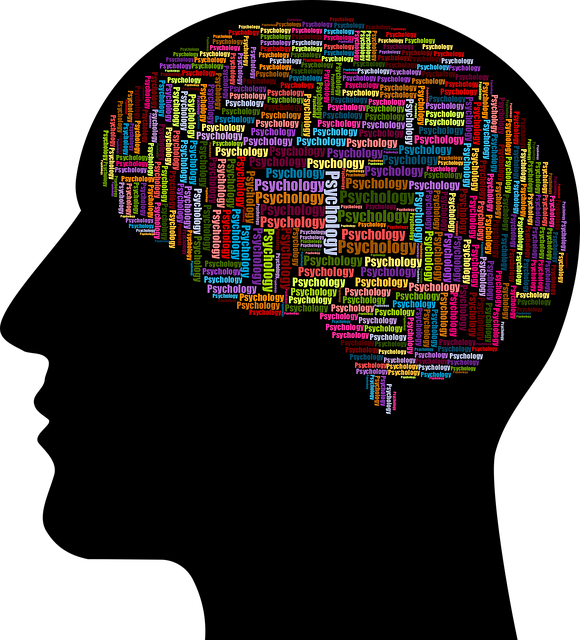Therapy, including psychological testing, is key to helping adolescent teens develop effective coping skills. Through assessments and evidence-based techniques like CBT, teens gain tools to manage stress, anxiety, and emotions. This process promotes self-awareness, enhances conflict resolution, and encourages positive self-talk. Combining therapy with social network support and self-care practices fosters resilience, enabling teens to thrive academically and personally. Psychological testing data also informs mental health policy, shaping evidence-based practices for better adolescent well-being.
Coping skills development is a crucial aspect of adolescent well-being, enabling teens to navigate life’s challenges with resilience. This article explores various facets of fostering effective coping mechanisms, from understanding their significance to employing therapeutic approaches and psychological testing. We delve into strategies that support teens in building adaptive skills, empowering them to thrive long-term. Discover how tailored therapy can help adolescents overcome struggles and cultivate a healthier, more balanced lifestyle through these essential coping strategies.
- Understanding Coping Skills: A Foundation for Adolescent Well-being
- The Role of Psychological Testing in Identifying Coping Challenges
- Strategies for Building Effective Coping Mechanisms
- Therapy Approaches to Support Teen Coping Skills Development
- Empowering Teens: Long-term Benefits and Maintaining Coping Strategies
Understanding Coping Skills: A Foundation for Adolescent Well-being

Understanding coping skills is a fundamental aspect of fostering adolescent well-being. These skills serve as adaptive mechanisms, enabling teens to navigate life’s challenges and maintain mental health. Through therapy for adolescent teens, psychological testing can uncover areas where support is needed. By identifying specific triggers and emotional responses, professionals guide young individuals towards healthier coping strategies.
Self-care routine development for better mental health is a key outcome of this process. Teaching teens effective conflict resolution techniques and promoting positive self-talk helps them build resilience. Additionally, community outreach program implementation can provide adolescents with social support networks, further enhancing their ability to cope with stress and adversity.
The Role of Psychological Testing in Identifying Coping Challenges

Psychological testing plays a pivotal role in identifying coping challenges faced by adolescent teens. These evaluations go beyond mere diagnosis; they provide a comprehensive understanding of an individual’s emotional, behavioral, and cognitive responses to stress, trauma, or everyday pressures. By employing various tools such as questionnaires, interviews, and performance tasks, therapists can gain insights into the unique ways teens process and cope with their experiences. This is particularly crucial in therapy for adolescent teens, as their developing brains require tailored interventions.
The findings from psychological testing guide the development of targeted coping skills and communication strategies, addressing specific areas of need. For instance, results may highlight elevated levels of anxiety, prompting interventions aimed at anxiety relief. Furthermore, these assessments inform mental health policy analysis and advocacy efforts by shedding light on prevalent coping challenges among teens, potentially shaping evidence-based practices and resource allocation within the broader mental health landscape.
Strategies for Building Effective Coping Mechanisms

Building effective coping mechanisms is a crucial aspect of personal growth, especially for adolescent teens navigating life’s challenges. Therapy plays a pivotal role in this process by providing a safe space to explore emotions and learn healthy expression. Through various therapeutic techniques, such as cognitive-behavioural therapy (CBT) or mindfulness practices, individuals can develop tailored strategies to manage stress, anxiety, and difficult feelings. Psychological testing can offer valuable insights, identifying strengths and areas for improvement, thereby empowering teens to take charge of their mental well-being.
Incorporating positive thinking exercises, engaging in regular physical activity, and cultivating meaningful social connections are additional strategies for burnout prevention. Boosting confidence by setting achievable goals and celebrating small victories fosters resilience, enabling individuals to approach challenges with a more optimistic mindset. Ultimately, developing robust coping skills equips teens with the tools to thrive, promoting overall mental health and well-being.
Therapy Approaches to Support Teen Coping Skills Development

The development of coping skills among adolescent teens is a critical aspect of their overall well-being and resilience. Therapy plays a pivotal role in this process, offering various approaches tailored to meet individual needs. One such approach is psychological testing, which helps professionals understand the teen’s emotional state and identify specific areas where support is required. These assessments provide valuable insights into their strengths and weaknesses, enabling therapists to design targeted interventions.
Additionally, therapy for adolescent teens often incorporates social skills training and emotional intelligence development. By fostering better communication, empathy, and self-awareness, these strategies empower teens to navigate challenging situations more effectively. Moreover, addressing the Mental Illness Stigma Reduction Efforts is essential within therapeutic settings, encouraging open conversations and promoting understanding, thereby creating a supportive environment conducive to coping skills growth.
Empowering Teens: Long-term Benefits and Maintaining Coping Strategies

Empowering teens to develop effective coping skills can have profound and long-lasting benefits. When adolescents learn to navigate challenges through therapy for adolescent teens and psychological testing, they gain valuable insights into their emotional responses and triggers. This process equips them with Mind Over Matter principles that foster resilience. By integrating Self-Care Practices, such as mindfulness, exercise, and healthy sleep habits, teens can maintain a sense of balance and perspective even in stressful situations.
Encouraging positive thinking is another key component of coping skills development. Teaching teens to reframe negative thoughts and focus on solutions not only enhances their overall well-being but also strengthens their ability to cope with future obstacles. These strategies empower young individuals to take charge of their emotional health, ensuring they can thrive both academically and personally as they grow into adulthood.
Coping skills development is a vital component of adolescent well-being, as it equips young individuals with the tools to navigate life’s challenges. Through a combination of psychological testing and evidence-based therapy approaches, such as those tailored for adolescent teens, professionals can identify coping challenges early on. By implementing strategies that foster effective coping mechanisms, teens gain resilience and empowerment, leading to long-term benefits in their mental health and overall quality of life. This comprehensive approach ensures that adolescents are equipped to handle stress, build adaptability, and thrive in an ever-changing world.














